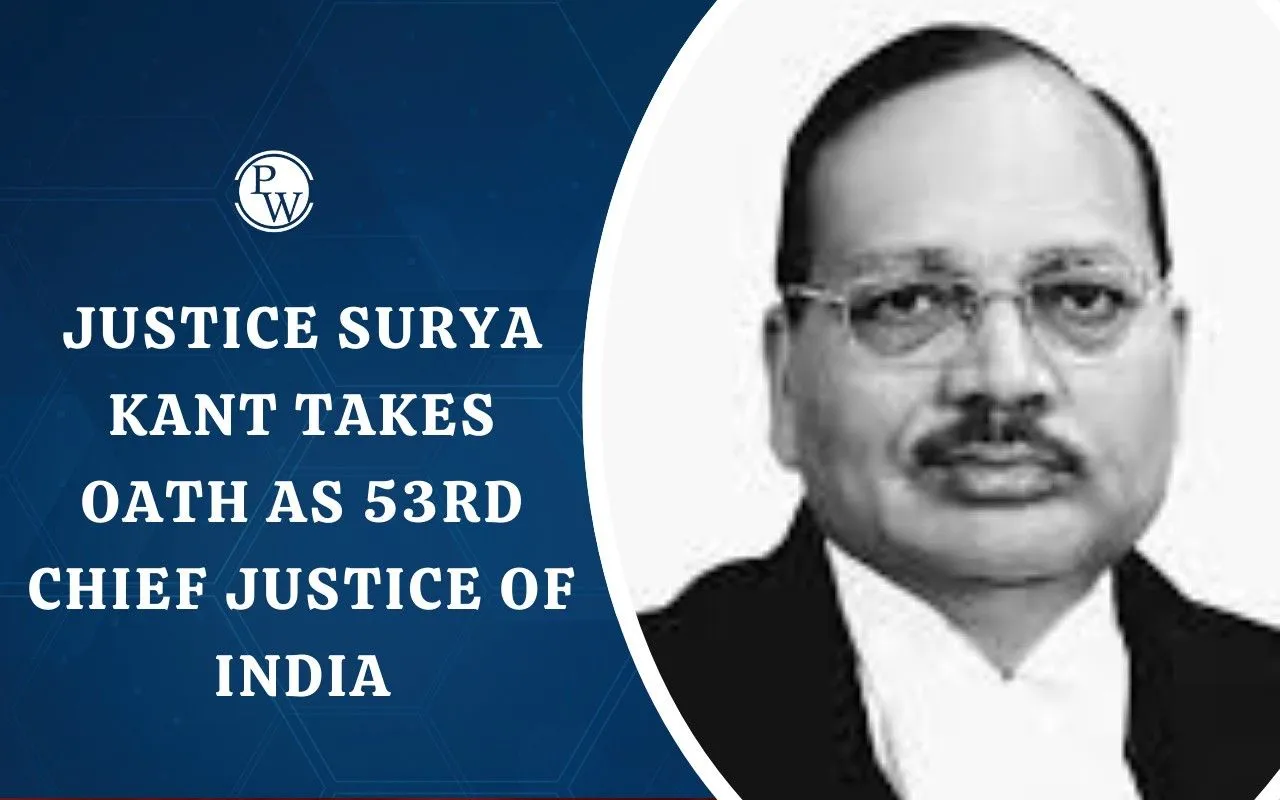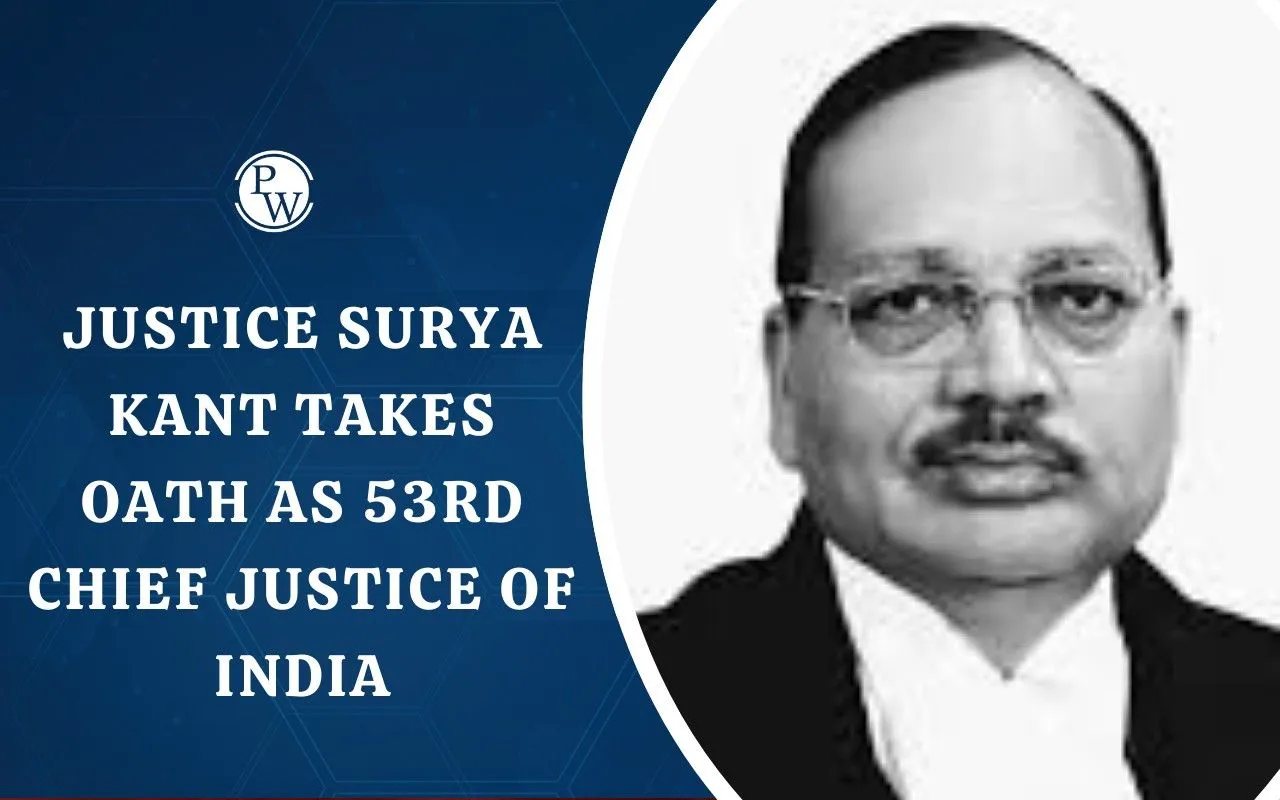

Justice Surya Kant has been sworn in as the 53rd Chief Justice of India (CJI). It is an important position for him because the CJI is the head of the entire court system in India, known as the Judiciary.
The President of India, Droupadi Murmu, administered the oath of office to him at a special ceremony held at the Rashtrapati Bhavan in New Delhi.
Justice Surya Kant took his oath on Monday, November 24, 2025. He took over from the previous Chief Justice, Justice B.R. Gavai. He will serve as the Chief Justice for about 15 months, until he retires on February 9, 2027.
Justice Surya Kant's Early Life
Justice Surya Kant was born on February 10, 1962, in Petwar in Hisar, Haryana. He came from a middle-class family, and his father was a Sanskrit teacher.
He did his graduation from the Government Post Graduate College in Hisar in 1981. He went to Maharishi Dayanand University in Rohtak and got his Bachelor's degree in Law in 1984.
Justice Kant started his work as a lawyer in the District Court in Hisar in the same year. In 1985, he moved to Chandigarh to practice in the Punjab and Haryana High Court.
He was good at cases related to the Constitution, government service rules, and civil matters. He earned a Master's degree in Law in 2011 from Kurukshetra University. He topped the master's degree course in law.
His Career Achievements
Justice Surya Kant has a long and impressive career in law and justice.
-
Youngest Advocate General: In the year 2000, he was appointed as the Advocate General of Haryana, becoming the youngest person to hold that important position.
-
Judge of High Court: He was made a permanent Judge of the Punjab and Haryana High Court in 2004.
-
Chief Justice of Himachal Pradesh: He was appointed as the Chief Justice of the Himachal Pradesh High Court in 2018.
-
Supreme Court Judge: He was elevated as a Judge of the Supreme Court of India in 2019.
Justice Kant's Contribution Helped Shape India
Justice Kant participated in the Supreme Court bench related to Article 370, Gender Justice, and Internet Access.
-
Article 370: He was part of the bench that supported the government's decision to end the special status of Jammu & Kashmir (by removing Article 370).
-
Internet Access: He was on the bench that ruled that stopping the internet for a very long time is not allowed, and that access to the internet is part of the freedom of speech.
-
Pegasus Spyware Case: He was on the bench that ordered an investigation into whether the government used a special software called Pegasus to spy on people.
-
Gender Justice: He has worked to promote equality for women, for example, by ordering that one-third of seats in all bar associations should be saved for women.
